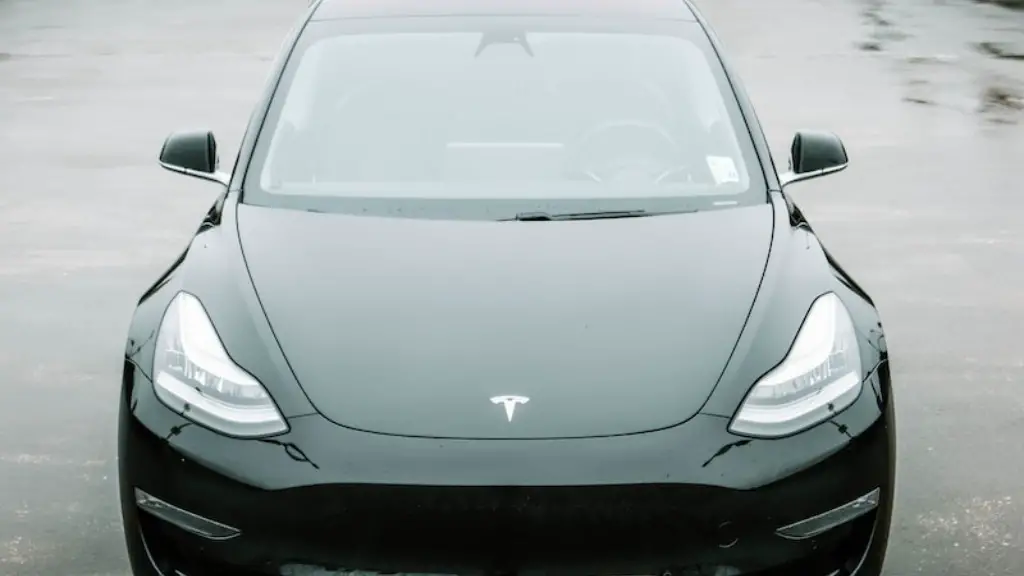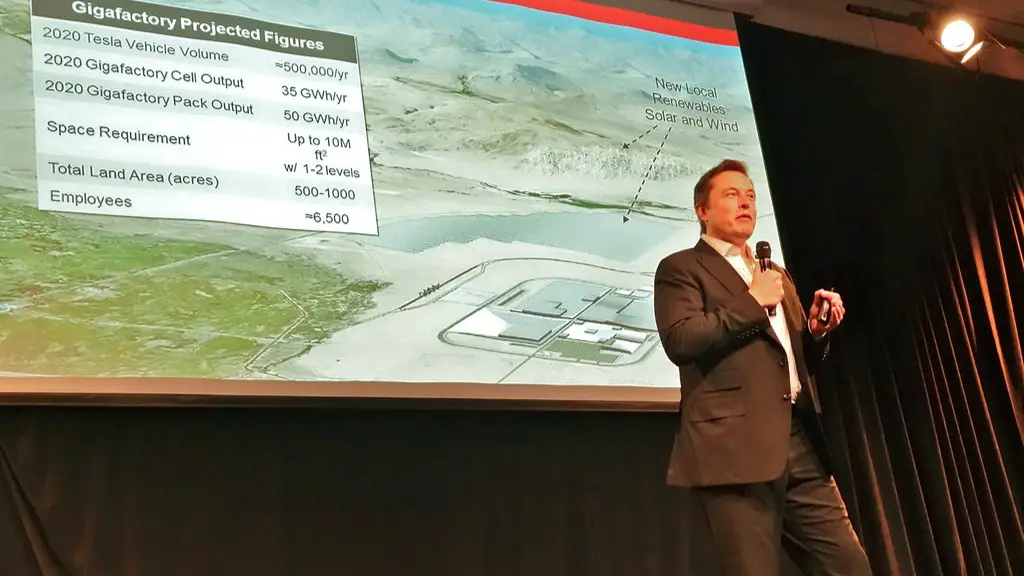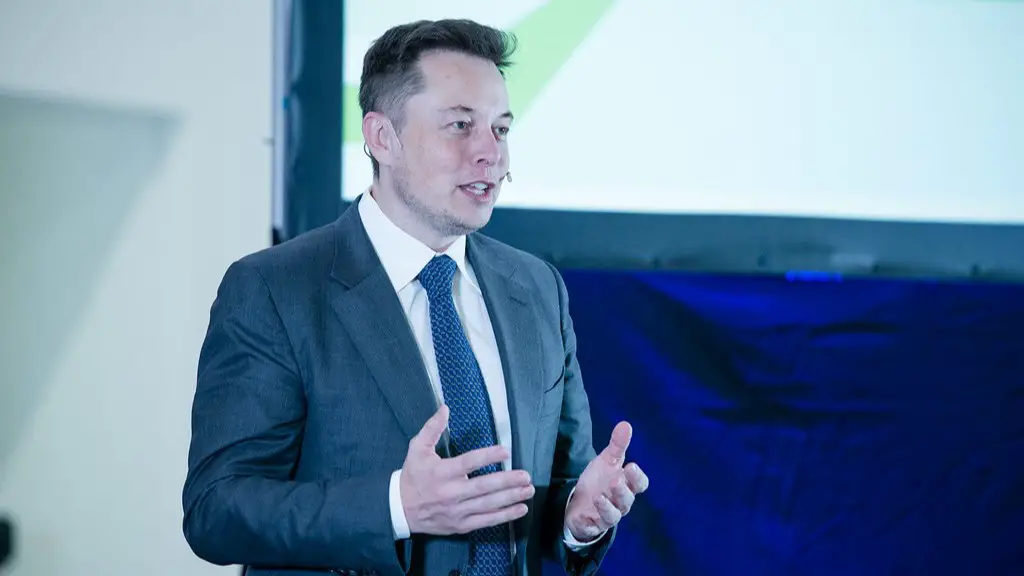Does Elon Musk Want To Live On Mars?
Since his SpaceX ambitions have taken off, the public have been increasingly curious about Elon Musk’s thoughts and plans for colonizing Mars. This has led to speculation about if Musk himself would ever consider becoming a Martian resident, however there is no definitive answer to this question.
Musk has not been entirely silent on the matter, and has made several remarks which require analysis to uncover his true intentions. Such an understanding of this situation can only come with an overview of the technological and theoretical advancements which have been made in working towards Musk’s grand vision of a self-sustaining Martian colony.
One notable advancement in Musk’s pursuit of a Martian colony came in 2017, when he announced the successful launch of the SpaceX Falcon 9 rocket. This rocket is designed to enable payloads of cargo to be delivered to the Martian surface. The success of this launch demonstrated the potential practical use of this technology, furthering Musk’s goal of establishing a living presence on Mars.
Another advancement came in 2019 with the launch of the Starship spacecraft. This innovative piece of technology is intended to enable long-term human habitation of the Martian surface. The Starship is designed to be able to land on, and take off from, planets such as Mars, allowing for the transport of large amounts of cargo, and the capability to return to Earth.
From a theoretical perspective, a self-sustaining colony on Mars is thought to be feasible. Researchers believe that the combination of the abundance of natural resources available on the planet, alongside the potential for large-scale agricultural production, may mean that a colony could thrive without needing to regularly import goods from Earth. This is one of the elements which have made the prospect of MartianLiving attractive to Musk.
In terms of Elon Musk’s opinion on the matter, he does not appear to be ruling out the option to himself call Mars his home. In an interview on the Joe Rogan Experience, Musk remarked that there was a “70 percent chance” he would end up on Mars, suggesting there is at least some possibility that he may indeed be open to living on the Martian surface.
Overall, from the technological and theoretical perspectives, there is no doubt that a Martian colony is a real possibility. If Musk’s past comments can be trusted, it appears likely that he is at least considering the prospect of being one of the first to call Mars home.
The Chances of a Martian Colony Succeeding
Given the technological and theoretical advances in favor of SpaceX’s goal of a Martian colony, how likely is such a project to be successful? One of the key aspects of a colony on Mars is the potential of creating a self-sustaining ecosystem, that is, one which relies solely on the planet’s own resources, supplemented by cargo flights from Earth. There has been research conducted into this subject, and on the whole, the opinion is generally positive.
A study performed by scientists from the University of Milan concluded that a Martian colony could theoretically have a stable environment, with the capability to sustain human life. This analysis suggests that a colony on Mars is achievable, potentially without the need to regularly send food and water from Earth. This is an encouraging sign for the ambition of a self-sustaining Martian colony.
Furthermore, recent findings from the NASA Curiosity Rover suggest that there could be an abundance of water located beneath the Martian surface. The presence of this natural resource could dramatically improve the chances of a colony succeeding on Mars, as water is one of the main keys to sustaining life.
Theoretically, the conditions are looking favorable for a successful Martian colony. If a colony were able to sustain itself on the planet for a sustained period of time, it could potentially lead to the further colonization of the red planet.
Potential Risks of Settling on Mars
The prospects of a successful Martian colony are exciting, however there are serious risks to consider in relation to attempting such a feat. One possible issue is the potential dangers that the settlers may face while living on Mars, due to its ever-changing environment. The rover Curiosity has been deployed to the planet since 2012, and during that period, scientists have observed Mars to be an incredibly hostile environment, with temperatures as low as -225F (-143C).
The extreme climate and atmosphere of Mars, undergoing massive changes on a daily basis, make human habitation difficult. If a colony were to be established, the implementation of extreme safety measures would be required.This could significantly increase the cost of the colony, and could be potentially catastrophic if the safety policies put in place were ineffective.
Another potential issue that could affect the success of a Martian colony is the cost to send cargo from Earth. As a self-sustaining colony requires certain amounts of food and water, the cost to send regular shipments from Earth could have an impact on the success of any Martian colony. If it is too expensive to keep such shipments going, then a colony may be unsustainable.
The risk assessment of attempting to establish a colony on Mars is far from straightforward. Any mission requires careful consideration of the potential risks, and of the resources available to address them.
The Benefits Of A Martian Colony
Despite the potential risks associated with a colony on Mars, the potential benefits of such an ambitious mission could be astronomical. A successful mission to build a self-sustaining colony on the Martian surface, could potentially open the doors to a whole new era of exploration and ambition in space, with the potential to develop a settlement on the red planet.
On a more humanitarian level, a successful mission on Mars could also lead to refuge for those on Earth fleeing for their lives. On a recent podcast, Musk made the suggestion that a large-scale refugee crisis could result in a large enough number of people wanting to inhabit Mars, to the point where it would become a fully habitable home for those who are seeking safety from Earth.
Finally, a successful mission to Mars could be the ultimate demonstration of the potential of human achievement. To leave the safety of Earth, to attempt to establish a new home and life on a hostile planet is one of the greatest challenges that humanity could ever face. Such a feat could become, quite literally, a giant leap for mankind.
The Impact Of Elon Musk’s Influence
Since becoming the public face of SpaceX, Elon Musk has been at the center of the conversation when it comes to traveling and inhabiting Mars. His influence and ambition to pursue such a grand mission have certainly played a role in shaping many aspects of this dream. His unique mindset has been present in the various advancements that SpaceX have achieved over the past few years, such as with the launch of the Starship spacecraft.
Musk’s drive to push beyond Earth and into the red planet has been largely responsible for the heightened interest in the topic amongst the public. His out-of-the-box thinking has enabled SpaceX to advance its mission to a point where a Martian colony is becoming increasingly feasible. Consequently, it is difficult to consider Martian colonizing without a mention of Musk, whose ambition and futuristic thinking has kept the project alive.
The potential impact that Musk could have on the mission is difficult to quantify. Nevertheless, his influence has been key in raising awareness and interest in the opportunity of a Mars settlement. His own potential involvement in the mission, whether it be as an inhabitant or as a leader of the mission, would no doubt increase the likelihood of success.
Final Thoughts
Despite being surrounded by ongoing speculation, the true intentions of Elon Musk regarding his own involvement in a Martian colony remains unknown. What is certain is that whatever the billionaire’s own plans may be, his influence and dedication to this mission has been integral in making the dream of a Martian colony a realistic ambition. It is clear that a journey to Mars is a huge undertaking and there have been many advancements which suggest it is feasible. Whether Musk himself is part of this mission or not is yet to be seen, however his role in advancing this mission has been considerable.




